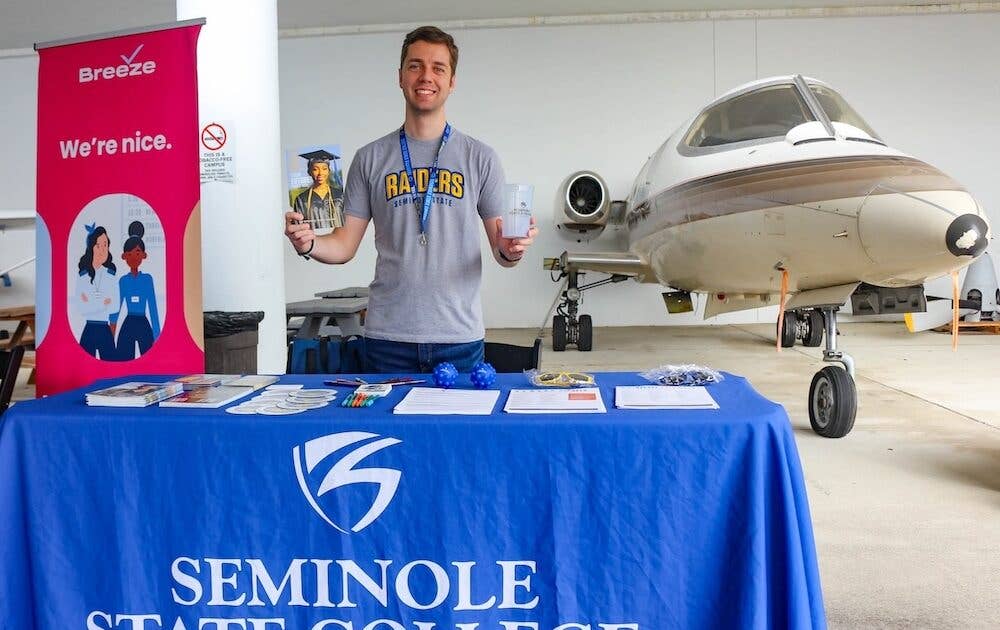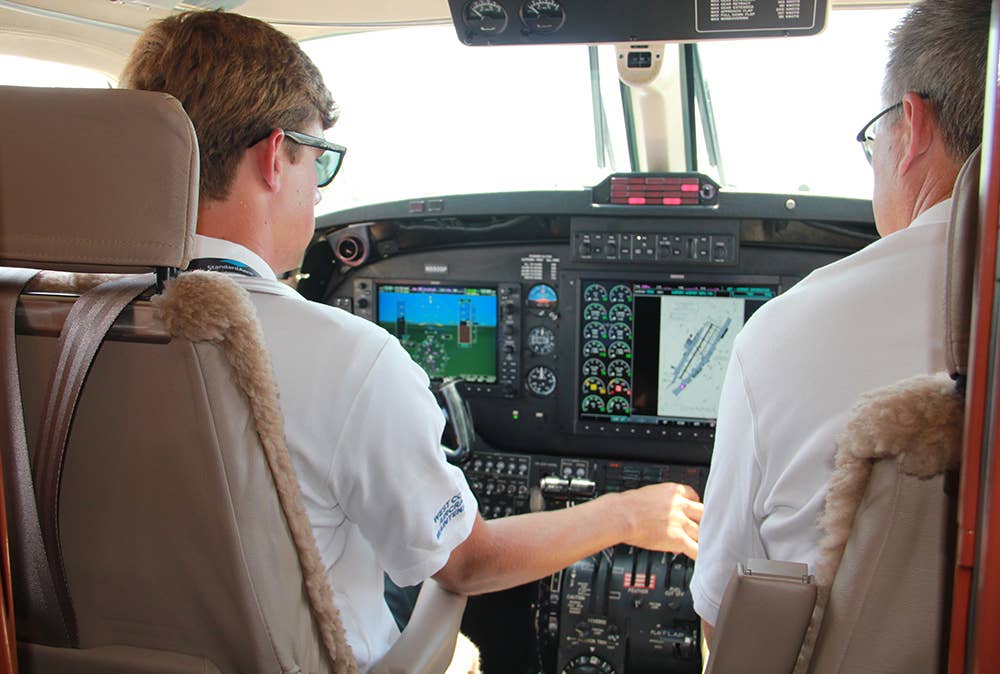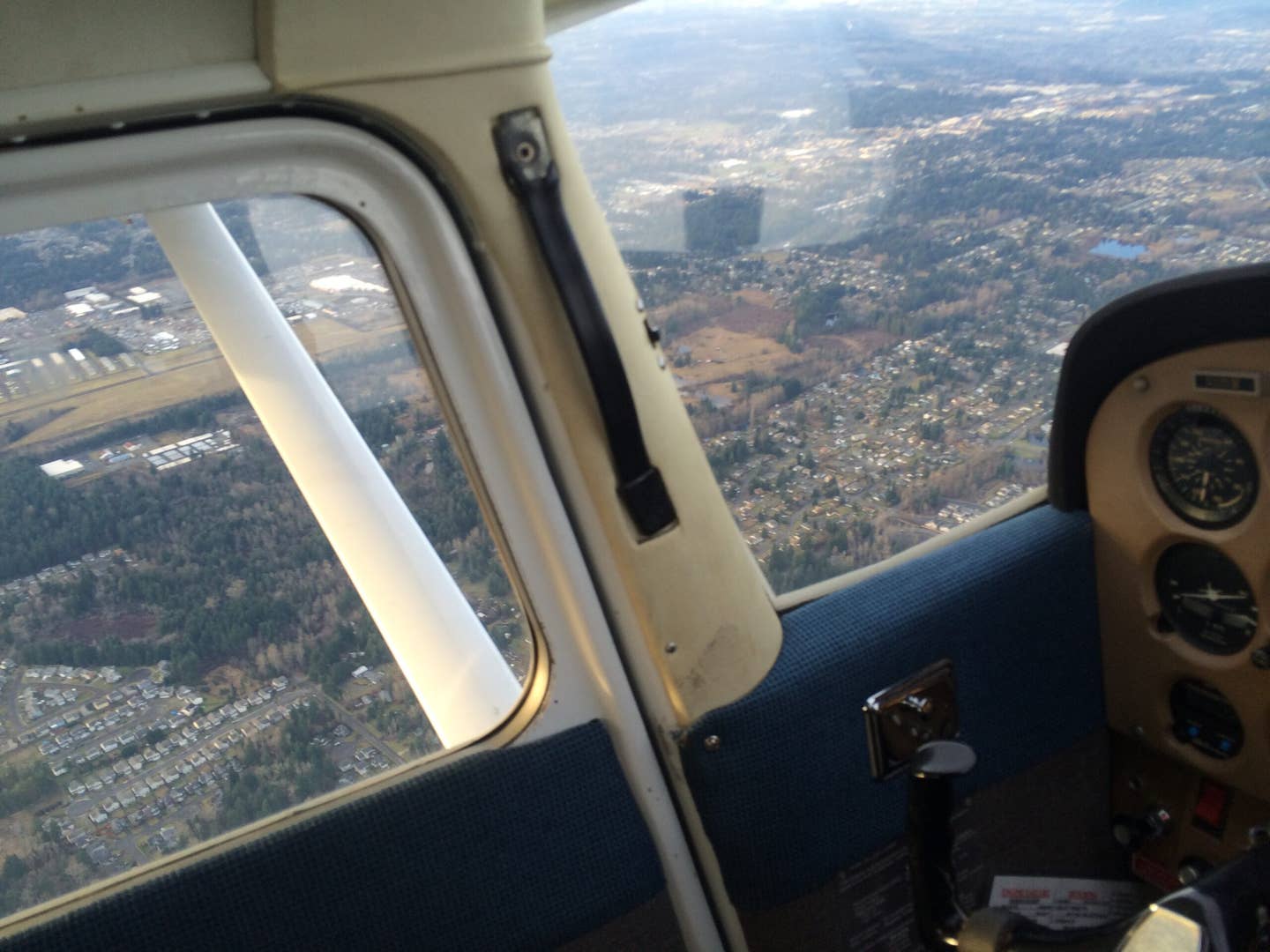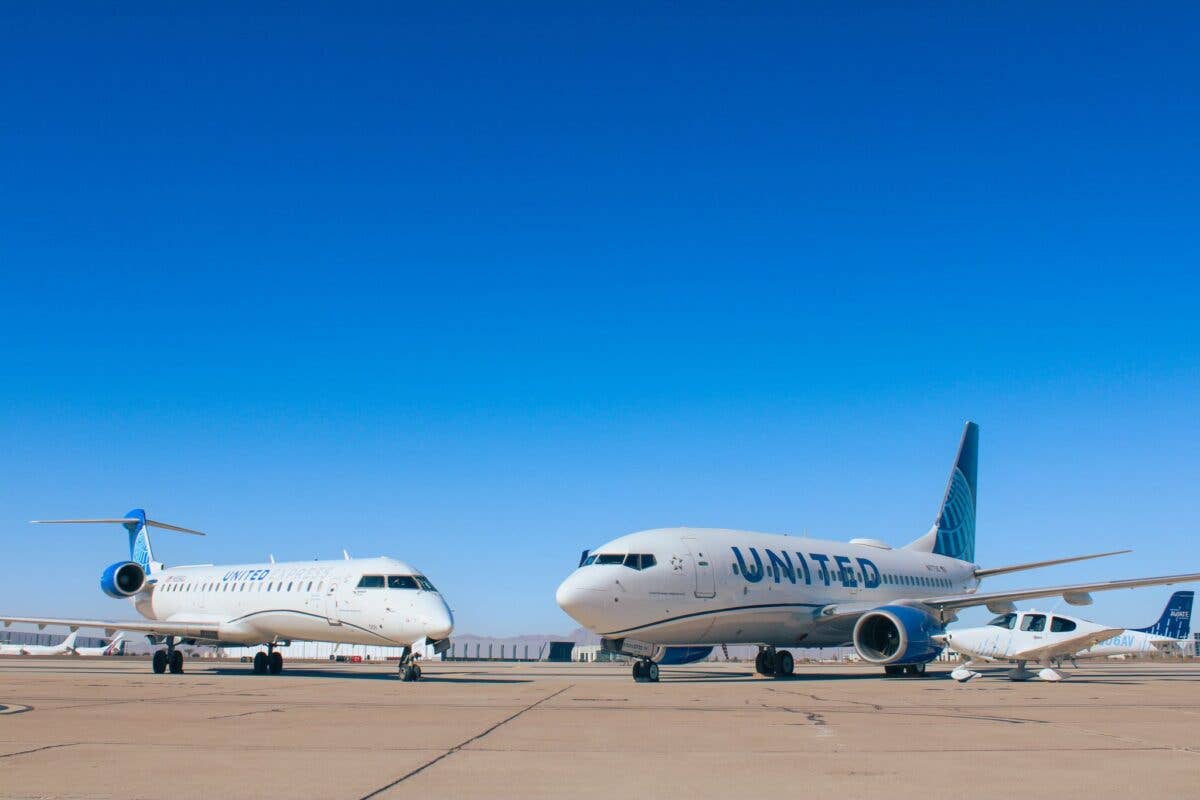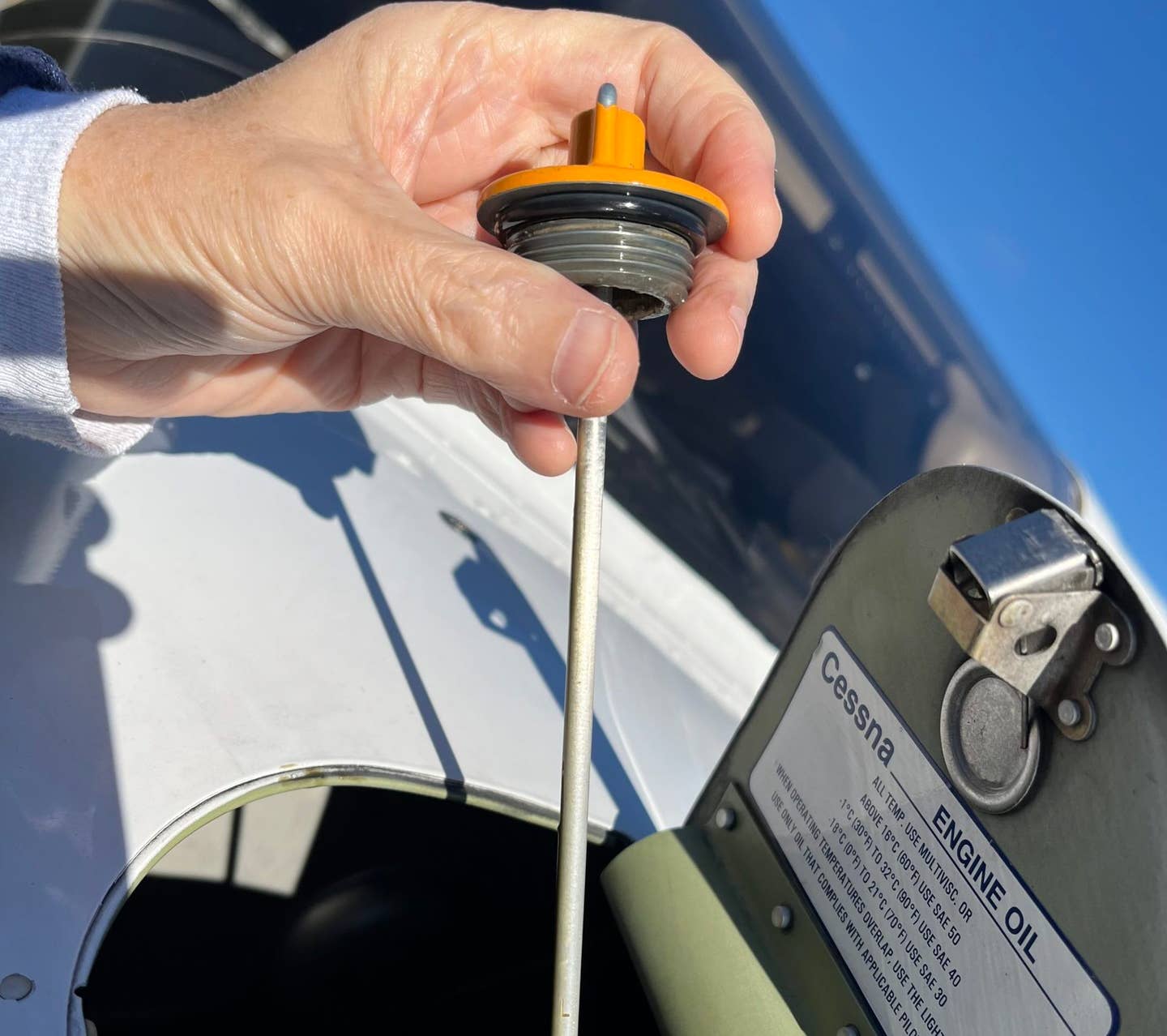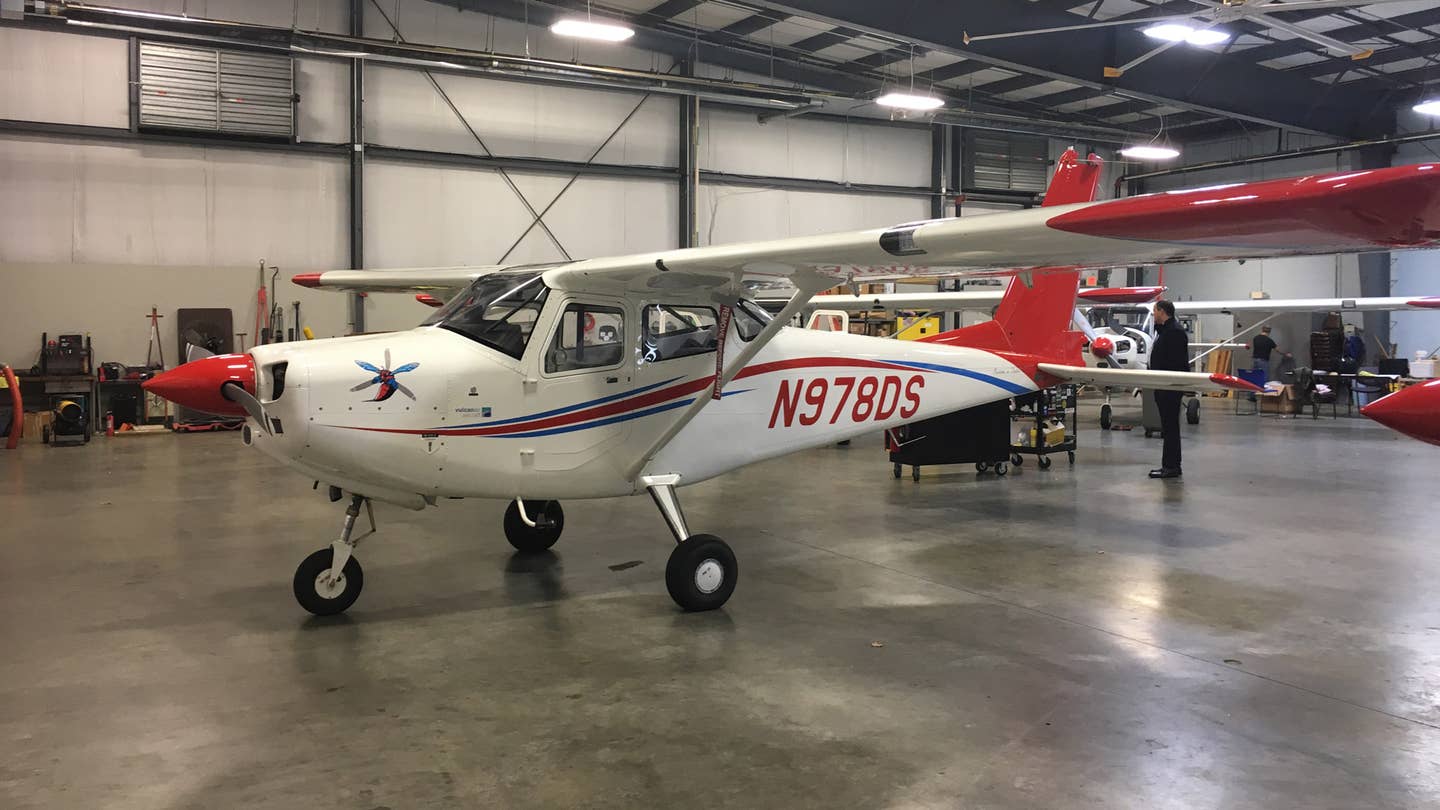
The fleet of Vulcanair V1.0s has now had 4 of the aircraft complete their first 100-hour inspections. Julie Boatman
Delaware State University in Dover continues its trajectory of growth in its Aviation Program. The university has taken delivery of 8 Vulcanair V1.0 training aircraft—with an eye on more to come.
From 1939 to 1941, as the US involvement in World War II rose sharply, Delaware State College, just north of Dover, held a key position in the development of the fighter squadron that would become well known as the Tuskegee Airmen. When the Civilian Pilot Training program (CPT) launched in 1939, schools took the lead in encouraging potential pilots to sign up for their initial licensing. According to Lt.Col. (ret.) Michael Hales, director of the Aviation Program at Delaware State University, “The black press at the time seized upon the idea: ‘What about blacks?’”
Six of the Historically Black Colleges and Universities (HBCUs) took the initiative, and began training young black men at their respective locations. In 1941, after Franklin Delano Roosevelt signed the Selective Service Act of 1940, prohibiting racial restrictions on any voluntary enlistments, plans by the US War Department launched to create a segregated flying unit, the 99th Pursuit Squadron. Training underway at Dover Air Park ceased for the college, and those trainees that wished to apply to the squadron moved to Moton Field in Tuskegee, Alabama, to continue their training.
Flash forward to 1987, when Dr. Daniel Coons—at the time, the university’s librarian—cajoled the school into starting an aviation program again. The university purchased a Piper Seneca I and a handful of Warriors, and it hosted a first class of 7 students at its facility at Delaware Air Park in Cheswold. Dr. Coons passed away in 2017, but his legacy lives on. Hales, who came on board in 2016 after retiring from the Army, identified the fact that the Seneca—still soldiering on 2019—was nearing the end of its useful time as a trainer, and the Warrior fleet needed an upgrade. With a generous grant of $3.4 million from the Delaware State Legislature, the university purchased a new Piper Seminole—and signed up for the fleet of Vulcanair V1.0s—10 total with the initial contract.
The Vulcanair V1.0 was selected for a multitude of reasons, according to Hales. Chief among them was its competitive pricing (which currently stands at $278,000 retail)—and the fact it coupled a docile airframe with a well-tested Lycoming IO-360-M1A engine and Garmin G500 TXi and GTN650 avionics in the cockpit. The first delivery took place in September 2019, and Vulcanair has ships number 9 and 10 in transit. The airplanes are built in the company’s factory in Casoria, Italy, and reassembled at Ameravia’s facility at the Miami Executive Airport in Florida. Vulcanair also makes the twin-engine P68 (formerly known as the Partenavia).
Delaware State’s Professional Pilot track is a four-year, undergraduate degree program, through which students end up with six certifications: private, instrument, commercial, multiengine, CFI, and CFII. Most obtain at least 350 hours upon completion of their certificates—and if they apply themselves to teaching others during their last year, they can come close to 1,000 hours. “When they hit 900 hours, the airlines come knocking,” says Hales, who points out that they’ve placed most every graduate into a pilot slot.
The school believes in its mission to create opportunity for underserved populations—and stands by that with the offer of a free discovery flight for any potential student. “For any student interested who want to try it out,” says Hales.

Sign-up for newsletters & special offers!
Get the latest FLYING stories & special offers delivered directly to your inbox

